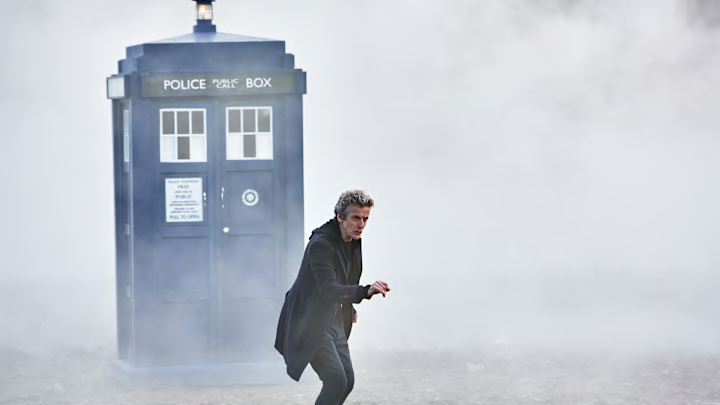50 years ago today, the sixth and final episode of the iconic story "Genesis of the Daleks" was broadcast. It's an incredible final episode that builds up to a perfect ending. But before it gets there, it gives us one of Classic Who's most iconic moments: the Doctor asking himself if he has the right to commit genocide, even on something as evil as the Daleks.
I've written before about why this moment is so iconic, so I won't write about it this time. Instead, I've decided to write about a moment from the New Series directly inspired by it. More importantly, it's inspired by a question the Doctor asks, one that is, at this point, purely hypothetical:
"If someone who knew the future pointed out a child to you and told you that that child would grow up totally evil, to be a ruthless dictator who would destroy millions of lives...could you then kill that child?"The Fourth Doctor
40 years and many incarnations later, that hypothetical question became literal.
A boy's name
The opening scene of "The Magician's Apprentice", the first episode of Series 9, is such a brilliant moment. Initially, it seems to unfold like a classic example of the Doctor's heroism. We see him give a big, hopeful speech to a child in danger, a child who's completely surrounded by horrific weapons called "hand mines". We know that, no matter how difficult it's going to be, he will save this child's life.
And then we find out the child's name.
"Davros. My name is Davros."
Before "The Magician's Apprentice" was broadcast, no one knew what to expect. At least, not for certain. There were many rumors that Davros would return, but nothing official. Marketing for the episode was very careful to avoid showing Davros's more familiar adult form. Young Davros was shown, but it wasn't stated who he was. So, while there were many rumors about Davros's return, for the longest time, that's all they were.
So the massive shock of hearing this child say his name paid off in a big way. If you need a reminder of just how shocking it was, there are a lot of great YouTube reaction videos that you can still watch. Even better is that a moment like this is usually saved for the end of an episode. Kicking off the new season with one of the show's most shocking moments immediately told the audience that this would be a season filled with surprises.
The rest of the two-part story, while not perfect, is still an enjoyable watch. "Apprentice" ended on a great cliffhanger that built on the opening scene, while the second part, "The Witch's Familiar", featured some great scenes between the Doctor and Davros. But nothing quite matches the impact of this amazing opening scene.
The Doctor's answer
Having said that, the question that the Fourth Doctor asked 50 years ago is answered, and it's satisfying. As I'm sure you remember, we find out that, initially, the Doctor didn't save Davros. Instead, he left him stranded in the middle of a minefield.
Of course, we do see him eventually return to young Davros. It's a moment we see twice. The first time, it's treated as a cliffhanger. The Doctor believes that both Missy and Clara are dead, and Davros is directly responsible. So when we cut to him holding a Dalek gun - a gun pointed at young Davros - and yelling, "Exterminate!", it's a moment that works.
But then we see the moment again a second time. This time, we've seen the events of "The Witch's Familiar". We see the Doctor defeat Davros once more and find out that Clara's still alive. Most importantly, he learns that the Daleks - the most evil creatures ever created - have a concept of "mercy".
This brings me to the end of the episode, and the inevitable answer to the Doctor's question. When the Doctor goes back, of course he's not killing young Davros. No, he makes the best moral choice - he saves an innocent child's life. It doesn't matter that he knows what the child will become. All that matters is that he remains true to himself and continues to do the right thing. It's a great ending, and perhaps the best way of answering his much earlier self's question.
